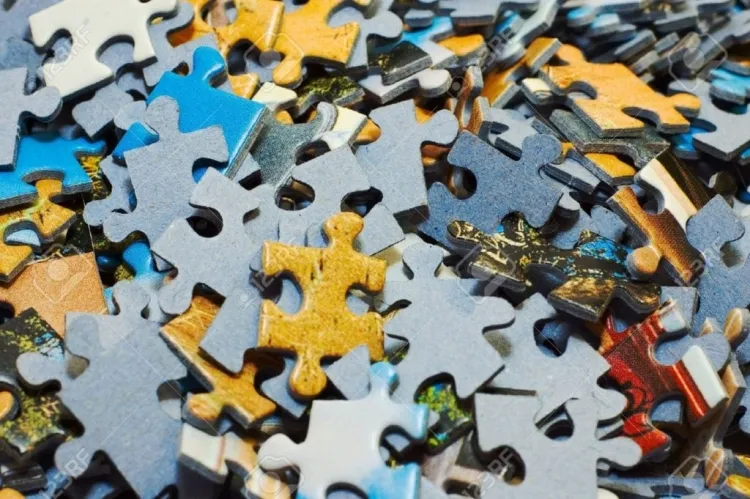The Fascinating World of Puzzles: A Comprehensive Guide...!!!
Puzzles are a timeless form of entertainment and education. They come in various types and difficulty levels, offering endless opportunities for mental stimulation and enjoyment

An Insightful Overview of Puzzles
Puzzles are captivating and stimulating activities designed to challenge the intellect and boost cognitive skills. They come in diverse forms and degrees of complexity, appealing to a wide range of age groups and interests. Beyond mere recreation, puzzles serve as educational instruments, offering numerous advantages from enhancing problem-solving abilities to promoting patience and perseverance.
Varieties of Puzzles
-
Jigsaw Puzzles: Arguably the most popular type, these puzzles consist of interlocking pieces that must be assembled to create a complete image. They range from simple designs with few pieces to intricate ones with thousands.
-
Crossword Puzzles: These word puzzles feature a grid of squares where players inscribe words horizontally and vertically based on given clues. Found frequently in newspapers and magazines, crosswords are known for enhancing vocabulary and general knowledge.
-
Sudoku: This number puzzle involves a 9x9 grid where players fill in numbers 1 to 9 such that each number appears only once in each row, column, and 3x3 subgrid. Sudoku puzzles come in various difficulty levels, catering to both novices and experts.
-
Logic Puzzles: These require the solver to use deductive reasoning to find the solution. Examples include brain teasers, riddles, and structured puzzles like the well-known "Einstein's Riddle."
-
Mechanical Puzzles: These three-dimensional puzzles require the physical manipulation of objects. Popular examples include the Rubik's Cube and various disentanglement puzzles, often necessitating spatial awareness and strategic thought.
-
Word Search Puzzles: In these, players must locate and circle words hidden within a grid of letters. Words can be placed horizontally, vertically, or diagonally and can vary in difficulty based on the grid size and word obscurity.
-
Maze Puzzles: These involve navigating a path through a labyrinth from a start point to an endpoint. Maze puzzles can be simple or extremely complex, aiding in the development of spatial and navigational skills.

Educational Advantages of Puzzles
Puzzles provide a multitude of educational benefits. They are frequently employed to enhance cognitive development in children and maintain mental agility in adults. Key benefits include:
-
Problem-Solving Skills: Puzzles necessitate critical thinking and strategy development, which are essential skills in everyday life.
-
Memory Enhancement: Engaging with puzzles often involves recalling patterns, words, or numbers, thereby improving memory and recall abilities.
-
Attention to Detail: Puzzles demand a sharp eye for detail, whether matching jigsaw pieces or finding the right word in a crossword—skills valuable in various life aspects.
-
Patience and Perseverance: Completing a challenging puzzle requires patience and perseverance, qualities vital for overcoming obstacles and achieving long-term goals.
-
Spatial Awareness: Puzzles like jigsaws and Rubik's Cubes require an understanding of shapes and spatial relationships, which can enhance spatial awareness and visualization skills.
-
Language Skills: Word puzzles such as crosswords and word searches can enhance vocabulary, spelling, and overall language proficiency.
Puzzles as Social Activities
Puzzles are not solely solitary pursuits; they can also be social endeavors. Collaborating on a puzzle with friends or family fosters teamwork and communication, providing an opportunity to bond over a shared goal and enjoy quality time together. Group puzzle activities are also common in educational settings and team-building exercises, promoting teamwork and collective problem-solving.
The Evolution of Puzzles
Puzzles have undergone significant evolution over time. Ancient civilizations, including the Greeks and Egyptians, used puzzles as recreational and educational tools. Today, puzzles have embraced technology, with digital versions accessible on computers, tablets, and smartphones, offering new challenges and interactive features to a broader audience.
Puzzles are a timeless form of entertainment and education. They come in various types and difficulty levels, offering endless opportunities for mental stimulation and enjoyment. Whether you're looking to sharpen your mind, relax, or bond with others, puzzles are an excellent choice.
What's Your Reaction?
















